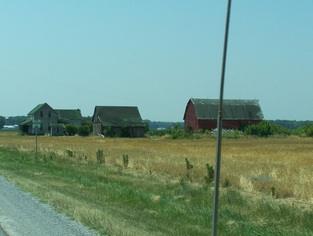 When purchasing land, it's vital -- before anything else! -- to determine the quality of the soil. Must! Check! Soil! It's the dirt that will determine whether a farm will support corn, blueberries, chickens, vegetables, cows, what-have-you easily, or if there will be a mighty struggle. Or so I learned in my Beginning Farmer webinar this year. Thing is, there's a boggling amount of data online about any particular chunk of paradise. About the dirt, even. For instance, with this US Department of Agriculture site, you can look at any given plot of land to determine whether that acreage is of little agricultural value, being mostly "Quetico-Rock outcrop complex 2 to 8 percent slopes" or of better agricultural value "Kingsbury silty clay 2 to 4 percent slopes." Not that the site tells you that in hiker's parlance, it's a wooded ridge or (after all that rain) a somewhat mucky meadow. Or that the view is heaven. 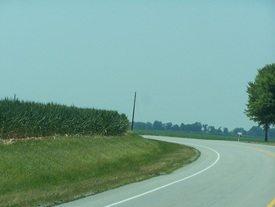 There are resources a mere click-click-click away that will track the growing-days during the past ten years, the first and last dates for frost, average rainfall, the day robins are first sighted, and a hundred other weather variables. All of which might deserve the notice: Past Performance Is Not an Indicator of Future Results. But still.
2 Comments
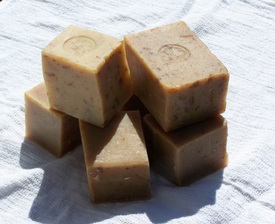 It's a little bit mad-scientist, a little bit Little House on the Prairie, and even though the answer is "Yes," to this question: "Can't you buy that stuff these days?" I continue to make a batch or two of soap every year. Call me a thrill-seeker, but the two main ingredients alone are worth the effort: boiling oil and caustic lye. In everyday life -- aside from driving a car -- what's more hazardous than boiling oil and a lye solution that WILL burn the skin clean off your skin? My former sister-in-law K taught me this old-fashioned craft. She impressed upon me the urgency of getting the measurements absolutely precisely right, and about not playing around with this dangerous stuff. Seriously. K made wonderful soaps, including one particularly astringent batch that she instructed us all not to use "on your generals." Saponification = the chemical process by which a strong base (like lye) chemically combines with oil to form soap. 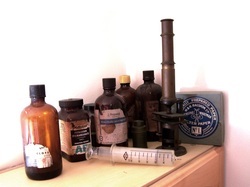 Thanks to her caution, I do wear rubber gloves and eye protection during the dangerous phases of soap-making, and make sure of excellent ventilation. Still, from time to time, I am profoundly glad that K has missed some of the more creative moments in the laboratory. Of course aside from the thrill of not getting hurt with the dangerous ingredients, there's the alchemical fun of making, you know, SOAP. The essential oils –– essential! –– like lavender, peppermint, vanilla, clove. And more exotic scents: bitter almond, sweet orange, birch, wormwood, violets. And that's just the tip of the smelly iceberg. Add beeswax, and rose petals or steel-cut oatmeal, cinnamon, or dried mint and powdered green algae or ground marsh mallow root and chopped almonds and the soap is like a good magic spell. 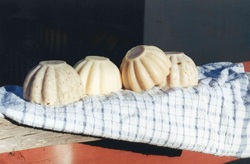 I'd been at this for a few years -- defying hideous injury, stirring up hedge-witchery, and sending the sudsy products into the world as gifts -- when a friend said, "Hey, not for nothing, but can you make some soap without the leaves and twigs for once?" Because, regrettably, that stuff got caught in her man's body hair. Sure, I said, for once. Though, honestly, probably not for twice, because really, why NOT add whole leaves, tiny plastic toys, lashings of rose absolute or eucalyptus oil, flecks of bergamot, dried heads of clover? If you are going to make your own soap, you might as well aim for something strange and wonderful. 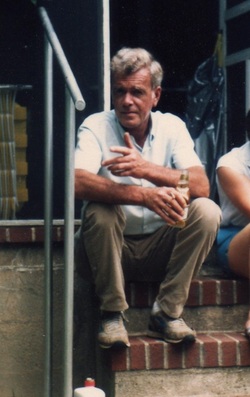 According to family lore, my father hated his piano lessons with a fierce and implacable passion. While his parents kept the big family house open, this was one of the landmarks: a pair of worn tracks on the Turkey carpet, scuffed, it was said, by the truculent feet of young Hollis during the daily hour of practice as he sat at the piano bench, refusing to put his fingers on the keyboard. Month after month after season after year, swinging his feet for an hour at a time. My father played quite beautifully as an adult, mind you, but he was quick to point out that he played "by ear." He didn't cop to the ability to read music. He could play nearly anything he heard, including several 1920's-era Scott Joplin ragtime tunes -- the sprightly syncopation never failing to surprise the listener when paired with Daddo's general appearance. His abhorrence of "lessons" spilled liberally over the lives of his family; we weren't the kind of kids who got signed up for gymnastics class or swim lessons. It seemed a little hard at the time but it made my sister and me independent in the end. If we really wanted to learn something extra, we made it happen ourselves. I wrangled in-school music lessons with an excellent music teacher, Mr. Foreman, in fifth and sixth grades, though Daddo refused to let me take up the piano. Instead, I studied that most portable and effete of instruments: the flute. I forget now why I stopped -- something to do with band practice, probably, and needing a ride after school. Which leads me to my small point. Among the miscellany on my bucket list of ambitions is one smallish musical item: Cello lessons. And here's one reason why (though YoYo Ma is never too far out of the running either): 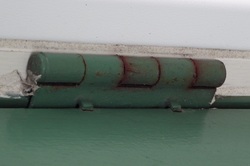 The first time it happened, we had been racing the Lightning in Ecuador. Our first World Championship together, and we'd nearly won. Despite our big swing-and-a-miss at the top spot, I was pretty happy about the races. We'd sailed well, we'd had beer on the boat (to the dismay and envy of our competitors), a disposable camera (to the distraction and dismay, etc.), and Pappa Joe had cheered on his youngest son from a spectator boat. So -- the hangover and the crack-o-dawn bus-run to Guyaquil, where the airport was mobbed because of the eruption of volcano Tingurahua in Quito? No big. We shouldered through rafts of American tourists like Stanley Cup heroes in a flying wedge, carrying our ginormous silver cups high. The exotic, husky, cheerleader-after-the-big-game-thing that happened to my voice seemed funny at first. It was like channeling Kathleen Turner by way of Tobey Maguire. Then came the fever and the last of my voice. Laryngitis. In the Miami airport. While we were delayed. I'd open my mouth, push air and zip, nada, nuttin. Like a cat meowing on the outside of a window. I was forced to answer everything in a conspiratorial whisper. Had I packed my own bag? Had it been in my possession the whole time? Had anyone unknown to me asked me to carry anything? 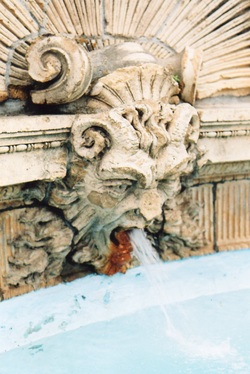 It was not so awful, having my husband take the public reins at the airport: he ordered me ginger ale, hot tea, soup. He interpreted my breathy single-word comments, and answered for me when people asked about the ginormous silver cup I was carrying. Finally home, after I called Mumsie to check in -- which went, predictably enough like this: "Hi Mom, we're home." "What? Hello?" "Hi Mom! We're home!" "Who is this?" "It's me, Amy. We're home!" "Why are you whispering? Are you okay?" Mr. Linton was obliged to make the rest of the check-in calls. It was for him to answer questions about our trip, the racing, the spectacular devaluation of the local currency, that unsuccessful morning when we went hunting marlin. I hovered nearby, trying to transmit by lip-reading the things I wanted to add or ask. He made me a doctor's appointment, but it took days for the voice to come back. In the meanwhile, I helped my sister at an art show, pinning a note to my shirt that read: "I can't talk." At home, if someone telephoned, I could only stare helplessly at the machine. As a fan of the blather, patter, chit-chat, random singing, and jibber-jabber, it was kind of a nightmare. It turns out I am one of those people who get laryngitis. Every year or so I'll enjoy a husky-voiced day and then a rustic spell of speechlessness punctuated with the sound of nails being pried from heart-pine. It happens often enough to remind me of how awful it feels to be to be silenced and barred from expressing an opinion. Censorship bites. Even when that opinion is tiny and bland, an opionionette. Evidently, however, it's a lesson that bears repeating. Darned old dharmic justice. 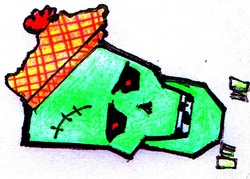 As if the big "bear cave" bow of the Flying Scot wasn't roomy enough, TwoBeers and his team of Igors started thinking about overnight accommodations. The Frankenscot, our planned entry for the Everglades Challenge Adventure Race next spring, offers plenty of floorspace for a sailor to sleep. Not only do the rules require it (or a tent, which would mean stopping), the sleeping possibilities are part of what we figured made the Scot a good starting corpse for this project. Still, after having taken a Sawzall to the cockpit and opened it wide, one small drawback presents itself: how dry is it going to be for that sleeper? Not to mention -- though I do -- whether the intrepid sailors might be able to take shelter from gnats and mosquitoes. To that end: pony walls and a tonneau cover.
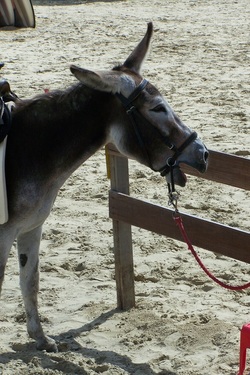 It's nearly done, sadly, but the Beginning Farming 101 class offered by the Cornell Cooperative Extension service has been fascinating. Putting aside the goal of the webinar to make each of us 50 wanna-be farmers successful, the course has offered wonderful glimpses into other worlds. I can only imagine the research and tragedy behind this: "Donkeys are apparently most effective in small, open pastures or where sheep are cohesive and graze together. Feeds containing anabolic agents, such as monesin (Rumensin) and lasalacid (Bovatec), apparently are poisonous to donkeys...." Oh dear. So much is contained in the twice-repeated word "apparently." It's the first truth of farming: if you have livestock, you will have dead stock. But the writer, W.F. Andelt, from the Colorado State University Cooperative Extension in this paper entitled Guard Dogs, Llamas and Donkeys, continues on a rather happier note: "Donkeys can be obtained from the Bureau of Land Management or the U.S. Forest Service under the Wild Free-Roaming Horse and Burro Act for $75." Replacement bargain! 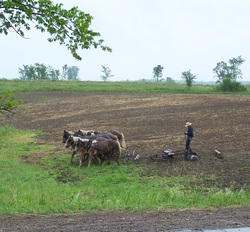 And there's an unexpected symmetry between farming and poetry (I know, newsflash -- I mean not just the usual clichés about pastoral beauty, but actual plant-murder and violent ritual sacrifice. Harsh stuff.) From Cover Crops to Plant in Early Spring, a Cornell Cooperative Extension publication: "April is the best time to kill many overwintering cover crops. They can be killed with an herbicide that works at lower temperatures, and smaller plants can often be killed with shallow disking." Proving that while T.S. might have been wrong about many things, he was right in declaring April as "the cruelest month, breeding lilacs from the dead land, mixing Memory and desire, stirring dull roots with desire." (The Waste Land by T.S. Eliot) The next class I signed up for in the Beginning Farmer program begins in a few months. 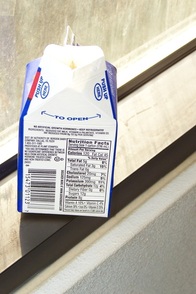 "Doesn't it seem like things are smiling at you?" Sanj asked me. We were sharing a table, studying at the library. It was freshman year at college, and people did grow strange at midterm. But he was sincere and seemingly both hinged and balanced. At my expression, Sanj jabbed a finger at the chrome pencil sharpener. "See? It's curved. Like it's cheerful. Like it's smiling." And it did look cheerful. Another time, Sanj traced the happy curve of the heavy food-service dish and held up the polished metal bowl of a serving spoon in place of his own smile. From the opposite side of a lecture hall, he'd point out the joyful bend in the face of a clock or the goofy grin made by crooked window-shades. From time to time, when I spot an unlikely smile, I think of him and hope that he still sees smiles all around. |
About the Blog
A lot of ground gets covered on this blog -- from sailboat racing to book suggestions to plain old piffle. FollowTrying to keep track? Follow me on Facebook or Twitter or if you use an aggregator, click the RSS option below.
Old school? Sign up for the newsletter and I'll shoot you a short e-mail when there's something new.
Archives
June 2024
Categories
All
|
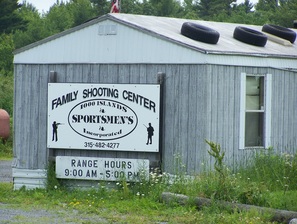
 RSS Feed
RSS Feed
